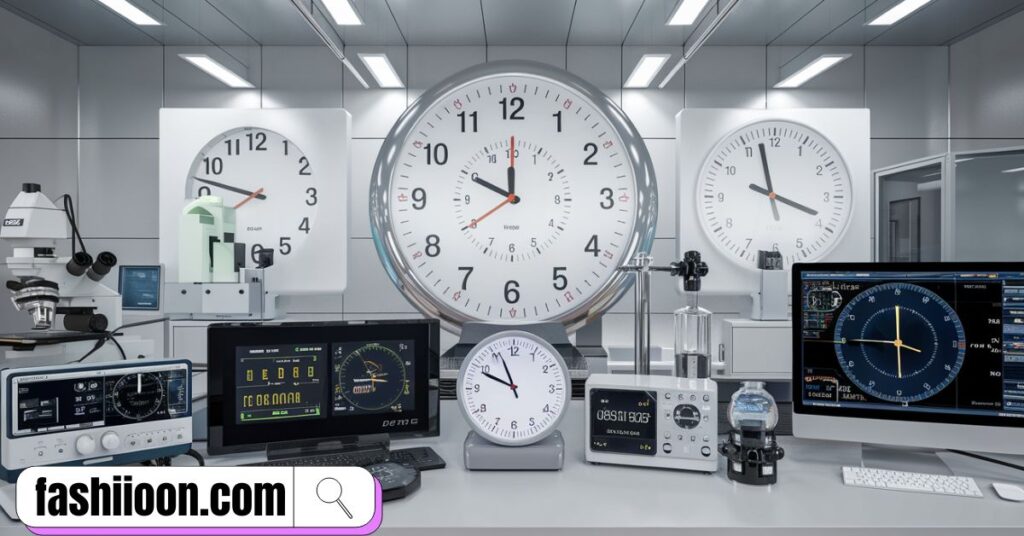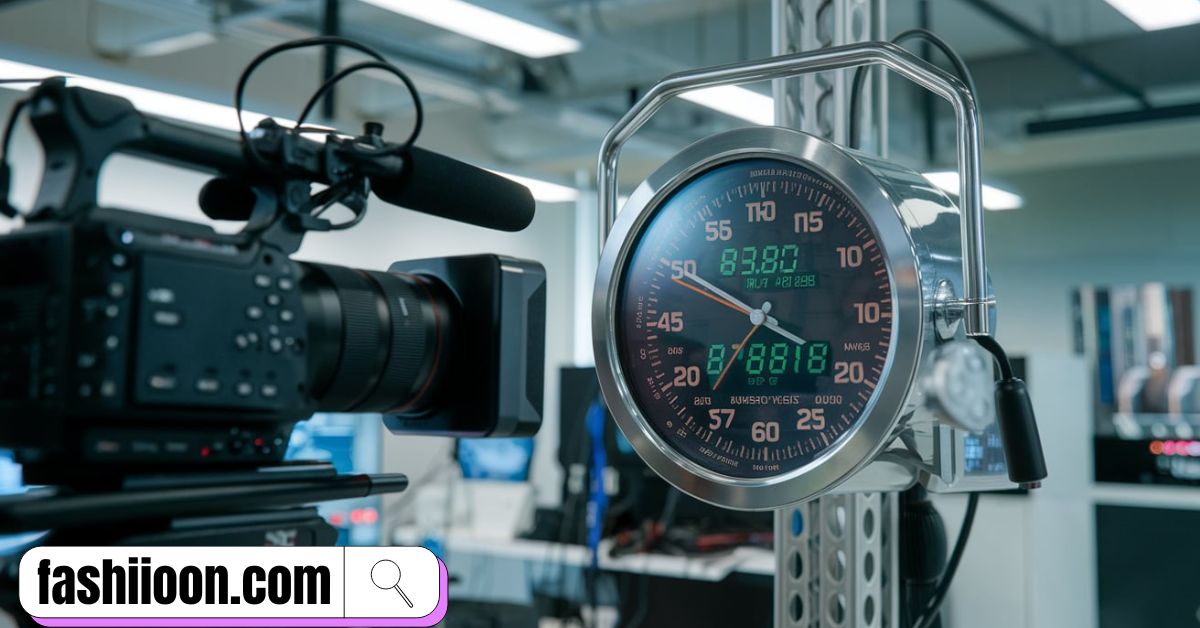In today’s tech-driven world, precision in time measurement is crucial. Every second counts, and in some cases, even nanoseconds matter. High-tech time measurement ensures seamless operations, from computing to space exploration.
In this article, we will explore the evolution, importance, and benefits of advanced timekeeping technologies. You’ll learn about its applications, challenges, and future trends in the tech industry.
Overview of Time Measurement in the Tech Industry

Time measurement is the backbone of modern technology.
- It ensures smooth device performance.
- It helps synchronize networks and systems.
- It powers innovation in areas like AI, telecommunications, and navigation.
From milliseconds to quantum measurements, tech relies on precision. The industry uses tools like atomic clocks and network protocols to keep everything aligned.
Significance of High-Tech Time Measurement
High-tech time measurement goes beyond traditional clocks. It offers:
- Precision: Essential for complex operations like GPS and data transfers.
- Speed: Ensures devices and systems respond in real-time.
- Efficiency: Improves overall performance and reduces lag.
Without accurate timekeeping, modern systems would fail to function optimally.
Evolution of Time Measurement in Tech
Traditional Timekeeping Methods
Long ago, people used simple tools like sundials and hourglasses.
- Sundials relied on the sun’s position.
- Hourglasses measured time with flowing sand.
These methods were innovative for their era but lacked precision.
Emergence of Digital Clocks and Watches
The arrival of digital clocks changed everything.
- Easy-to-read displays made timekeeping more accessible.
- Digital watches brought portability and style.
These devices laid the groundwork for integration into tech systems.
Integration of Timekeeping in Early Tech Devices
As technology advanced, timekeeping became integral to devices.
- Computers adopted internal clocks for better synchronization.
- Early tech gadgets incorporated time functions to enhance usability.
Precision Timing in Modern Devices
Role of Clock Speed in Electronics
Clock speed determines how fast a computer processes information.
- Higher clock speeds mean quicker calculations.
- Faster devices ensure smooth multitasking and better user experience.
Impact of Precision Timing on Performance
Accurate timing enhances performance across devices:
- Gaming: Reduces lag and improves responsiveness.
- Streaming: Ensures videos play without interruptions.
- Online Transactions: Enables secure and timely payments.
Synchronization Challenges and Solutions
Keeping devices synchronized is not easy.
- Challenges: Network delays, signal interference, and hardware limitations.
- Solutions: Advanced protocols like Network Time Protocol (NTP) ensure precise synchronization across systems.
NTP works by:
- Communicating with accurate time servers.
- Sharing consistent time updates with devices.
Atomic Clocks: The Pinnacle of Accuracy
Introduction and Applications of Atomic Clocks
Atomic clocks measure time using the vibrations of atoms.
- They are the most accurate timekeeping devices.
- Used in GPS, telecommunications, and scientific research.
How Atomic Clocks Revolutionized Timekeeping
Atomic clocks set new standards in precision.
- They enable global synchronization of networks.
- They support space exploration by providing accurate time references.
Understanding NTP in the Tech Industry
What is NTP?
Network Time Protocol (NTP) is a system that synchronizes clocks across devices.
- It ensures all systems operate on the same timeline.
- NTP is essential for online activities like gaming, streaming, and data sharing.
NTP Implementation in Networked Devices
NTP works by:
- Connecting to high-accuracy time servers.
- Distributing time updates to devices.
- Maintaining synchronization even during disruptions.
Lifetime Fitness Free Trial 2024: Access Your One-Day Pass
Quantum Timekeeping: A Glimpse into the Future
What is Quantum Timekeeping?
Quantum timekeeping uses quantum particles for ultra-precise measurements.
- It can track time at the smallest possible scales.
- These clocks are faster and more accurate than current atomic clocks.
Applications of Quantum Timekeeping
- Space Exploration: Navigating vast distances with precision.
- Medicine: Timing critical processes like drug delivery.
- Physics Research: Understanding fundamental particles.
Time Measurement Challenges in Space Exploration
Timekeeping in space faces unique challenges:
- Signal Delays: Long distances cause delays in communication.
- Environmental Factors: Radiation and temperature extremes affect clock performance.
- Solutions: Advanced atomic clocks and laser-based timing systems help overcome these issues.
Future Trends in Time Measurement Technology
Predictions for Next-Gen Timekeeping
Future innovations will bring:
- Miniature Clocks: Portable and highly accurate.
- Laser-Based Systems: Faster and more reliable than radio waves.
- Global Synchronization: Seamless timekeeping across devices worldwide.
Societal Impacts and Considerations
Advanced timekeeping will transform:
- Healthcare: Improved diagnostics and treatment.
- Finance: Secure and accurate transactions.
- Transportation: Enhanced navigation and safety.
FAQs
What is high-tech time measurement?
It involves using advanced tools and techniques for precise time tracking.
How can technology improve time accuracy?
By using atomic and quantum clocks for unparalleled precision.
Why is high-tech time measurement essential for the tech industry?
It ensures efficiency, synchronization, and smooth operations.
What are the latest innovations in high-tech time measurement?
Quantum clocks, laser-based systems, and enhanced NTP protocols.
How does the high-tech industry measure efficiency in time management?
Through precise timing tools, synchronization protocols, and performance monitoring.
How to Cancel Your Experian Membership: Quick and Easy Methods
Conclusion
High-tech time measurement is vital for the tech industry. It powers innovations, enhances performance, and ensures global synchronization. From atomic clocks to quantum timekeeping, the future promises even greater precision.
Time is the silent hero behind every technological advancement. As we embrace these innovations, we unlock new possibilities for a connected and efficient world.

Fashion is a Professional Fashion Platform. Here we will provide you only interesting content, which you will like very much. We’re dedicated to providing you the best of Fashion, with a focus on dependability and Fashion. We’re working to turn our passion for Fashion into a booming online website. We hope you enjoy our Fashion as much as we enjoy offering them to you.
